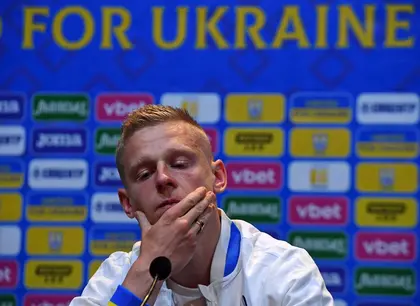Ukrainian footballers have been increasingly making their mark on the global stage, especially in the Premier League. A decade ago, only five Ukrainians had played in this elite English league, but recently, five Ukrainians played on the same day. Beyond the world of sports, their visibility is crucial in raising awareness of Ukraine’s struggles.
This visibility takes on added significance considering against the background of Russia’s ongoing war against Ukraine. After the February 2022 invasion, Ukrainian clubs organized a “Global Tour for Peace” to raise funds for those affected. By July 2022, funds from these matches contributed to equipping Ukrainian soldiers with protective gear and medical supplies. In August 2023, Tottenham Hotspur, a top Premier League club, hosted a pre-season friendly match against Shakhtar Donetsk, which successfully raised £505,000 to support Ukraine.
JOIN US ON TELEGRAM
Follow our coverage of the war on the @Kyivpost_official.
Ukraine has historically lacked a voice and visibility
Ukraine’s history is marred by instances of suppression and tragedy, such as the Holodomor, a famine orchestrated by Stalin between 1932-1933 where millions of Ukrainians were starved to death to crush the desire of the Ukrainian people to be free. By the end, there was no one left among the Ukrainian people to speak up and all voices were silenced.
Even some Western correspondents, like Walter Duranty of The New York Times, downplayed the famine. Duranty praised Stalin as a strong leader and was even awarded a Pulitzer Prize for his reporting on the USSR. He wrote in 1933 that: “There is no actual starvation or deaths from starvation, but there is widespread mortality from disease due to malnutrition… conditions are bad. But there is no famine.” In contrast, journalists like Gareth Jones risked their lives to bring the truth to light.

ISW Russian Offensive Campaign Assessment, January 20, 2025
Gareth Jones was the only reporter from the West who went to see the famine in Ukraine for himself. But when he told people what was happening, many did not believe him. Other Western reporters in Moscow, like Duranty, wrote stories repeating Soviet propaganda to make people doubt Gareth’s reports.
The full extent of the Holodomor was unveiled only after the fall of the Soviet Union, when historical archives in Ukraine were opened to the public, revealing a genocide that eliminated 13 percent of Ukraine’s population. Following the genocide, the erasure of the Holodomor from public memory was called the “final act of the crime” by historian Gerhard Simon.
Jones was also subsequently murdered, most likely in revenge for exposing the truth about the genocide, by Stalin’s NKVD in 1935.
In the postwar era, Ukrainian exiles attempted to speak up and keep the memory of the Holodomor alive. It wasn’t until the release of The Harvest of Sorrow: Soviet Collectivization and the Terror-Famine by British historian Robert Conquest in 1986 that the Holodomor received widespread acknowledgment in Western countries.
Prior to Russia’s full-scale invasion, The Holodomor had never been officially recognized nor condemned by the collective international community. That all changed after February 2022 as now 30 countries recognize the Holodomor as a genocide.
Waning support in Europe for Ukraine’s fight
The latest Eurobarometer survey in August 2023 revealed a shift in EU citizens’ support for Ukraine. The survey showed that 24 percent “totally agree” with “financing military equipment and training to Ukraine,” a decrease from 33 percent in April 2022, two months into the invasion. Overall support for military funding to Ukraine dropped from 67 percent to 48 percent during this period, while opposition rose from 26 percent to 34 percent.
Ukrainian footballers playing abroad serve as ambassadors for their country. Their success on the field is a reminder of Ukraine’s resilience and need for support. These athletes are symbols of hope, inspiring their compatriots and keeping Ukraine’s plight in the global consciousness. They’re constantly driving awareness of the Russo-Ukrainian war and driving fundraisers.
Two prominent players from the British Premier League have been especially vocal in advocating for Ukraine: Oleksandr Zinchenko expressed his daily anger and vowed not to stay silent about the war in his homeland. He pledged to fight for Ukraine, saying, “There will be a time everyone will be there. It will be the last call. All of us will go.” Zinchenko was honored with the Media Diversity Champion of the Year award for his protests against Russia’s invasion.
Meanwhile, Chelsea’s Mykhailo Mudryk emphasized his desire to help by promoting the truth on social media: “I want the entire audience I have on social media to listen so that people know the truth, perceive actual information instead of twisted propaganda. Other Ukrainian Premier League players like Everton’s Vitaliy Mykolenko also continue to give interviews and bring awareness about the war in Ukraine.
Former football legend Andriy Shevchenko and Oleksandr Zinchenko are ambassadors for the official Ukrainian government fund United24. They both organized a charity game in the UK to raise funds for rebuilding the Mykhailo-Kotsiubynskyi School in Chernihiv Oblast, which was shelled by the Russian army in March 2022.
Football is more than just a game
Ukrainian footballers playing abroad are doing more than just showing their skills on the field; they’re becoming important voices for their country. Their success in football is helping to share Ukraine’s story, which has often been ignored or forgotten. The haunting legacy of the Holodomor, where millions of Ukrainians were deliberately starved, underscores the importance of giving Ukraine a voice on the global stage. These footballers help keep attention on what is happening in Ukraine and that is more important than ever to keep the West united in helping Ukraine.
The views expressed in this opinion article are the author’s and not necessarily those of Kyiv Post.
David Kirichenko is a freelance journalist covering Eastern Europe. He can be found on X @DVKirichenko.
You can also highlight the text and press Ctrl + Enter










